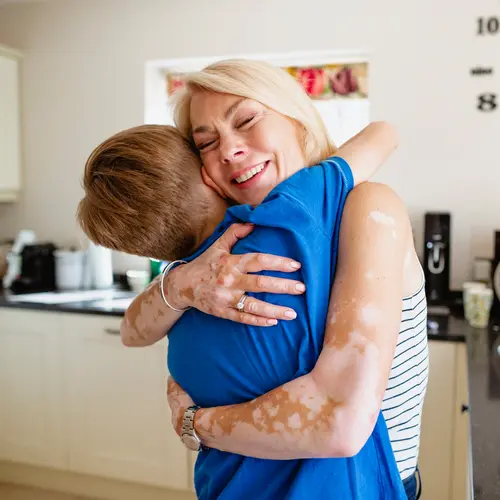HS Shouldn't Be Shameful

Hide Video Transcript
Video Transcript
ANNA CHAMPMAN
So my journey in getting diagnosed for hidradenitis suppurativa was a long one. Because for a long time, I didn't know how to talk about it. I think I had my first flare around 15 or 16, and I wasn't diagnosed until I was about 26. So there was those 10 years where I just was living in shame. I didn't know what was going on, and I thought it was because I was living in a fat body. I just was like, well, this is the thing about being fat, and I have to deal with it. And then when I finally did get diagnosed, the doctor knew exactly what it was immediately, and it was still a little nonchalant. OK, well, you have hidradenitis suppurativa and this is something that is very normal. So the doctor is able to normalize it for me. But I didn't realize that I didn't have to be living in shame as I was. It can be very brutal, right? Like you've got these cysts, they have pus. Sometimes they break, sometimes there's a weird odor. Like it can just be this sort of nasty thing that we have to deal with in our bodies. And I think that's why I'm so passionate about it now, is that I really want people to know that they aren't alone, that there are ways to make this a livable experience. And that there's also not a lot of information about it. And so that's why it's important to me to share.
I think it's really easy when you are experiencing something like this to feel isolated or to feel like there's something wrong with you. But there's not, and this isn't a hygiene issue. This is something that is genetically happening in your body. And we're conditioned to think that there's something wrong with us and that we've done something wrong when we experience a lot of pain. And that's just not true. This isn't the case for HS, and that is why it's so important to me to talk about it and to destigmatize all of the shame around it.
You don't have to just be stuck at home in pain. Like, we can talk about hot compresses. We can talk about medications. We can talk about rest. We can talk about the different foods you're eating. Like, there's all kinds of ways in which we can work with this.
What I learned is that shame only lives in a Petri dish. So when we don't talk about it, that shame gets to live rent-free in our brain, right? But when we talk about it, we normalize it. Then we get to see we're not alone.
We get to see, oh, my friend over there, who I think is amazing and brilliant, also has this. It's like sometimes we can accept something from people we love and our friends before we can accept it for ourselves.
As an advocate, my biggest goal is that one person feels less shame about their HS. If a whole room full of people with HS can feel less shame, that's incredible. But for me, it's like every person I meet, if I can impart one thing, it's that your body is not a problem. It's that HS is something that you can manage and live with and that your body isn't something to be ashamed of.
